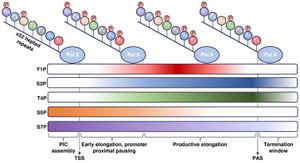DeepSeek, the Chinese AI lab, is making waves across the tech sector amid rising tensions between the United States and China over technological supremacy. Known for its economically efficient artificial intelligence models, DeepSeek's latest offerings, including the R1 and V3 models, are seen as significant developments within the intensifying US-China AI tech war.
Recently, billionaire investor Ray Dalio stated on the 'All-In Podcast' his belief concerning the strategic ramifications of DeepSeek's innovations. "The Chinese play is going to be chips, very inexpensive chips embedded in manufactured goods," Dalio asserted, referencing China's manufacturing capabilities. He warned, "This is a war no country can afford to lose," highlighting the geopolitics entwined with advancements in artificial intelligence.
DeepSeek's emergence could potentially undermine traditional tech giants, particularly after its R1 model debuted at reduced costs compared to industry leaders such as OpenAI's ChatGPT. This notable shift caused notable volatility on Wall Street, as US tech stocks saw significant downturns, including Nvidia's staggering market valuation drop, which plummeted nearly $600 billion. Investors are now questioning whether DeepSeek's disruptive model could reshape demand dynamics for chips and infrastructure from established firms, raising broader concerns around their extensive investments.
Technological developments have accelerated this scrutiny, especially as companies gear up for earnings calls. Dalio warned investors about the precarious nature of tech investments, alluding to the dot-com bubble era, when market euphoria was starkly disconnected from fundamentals. "A great company that's expensive is much worse than a bad company that's really cheap," he remarked, urging caution among those eager to capitalize on tech stocks.
China's tech ambitions are not solely theoretical. Huawei, alongside Beijing-based SiliconFlow, has taken concrete steps to popularize DeepSeek's models, integrating them within its Ascend cloud service during the Lunar New Year holidays. The aim was to make these sophisticated AI models not only available but affordable for end users. According to Huawei, accessibility to DeepSeek’s models is made possible through local computing solutions, which is reflective of China’s strategic pivot to bolster its domestic AI capabilities and circumvent reliance on foreign technological infrastructure. For example, the integration of DeepSeek’s V3 model on SiliconFlow's platform is priced at just 1 yuan (approximately US$0.13) for 1 million input tokens, epitomizing its commitment to affordability.
Further embellishing this trend, Microsoft recently announced its support for the R1 model on its Azure cloud-computing platform, allowing developers to create AI applications. Amazon Web Services has also embraced DeepSeek’s innovations, inviting developers to leverage these cost-effective solutions for their upcoming applications. This wide adoption signifies how the tech industry recognizes the importance of competing AI offerings, urging traditional giants to adapt swiftly.
The growing prominence of DeepSeek's models is contributing to this pressure. Comments from industry insiders indicate mounting competitive anxiety, with American firms like Nvidia feeling the heat as they scramble to retain their dominant market positions. ChevyChase, one tech analyst, remarked on the shifting tides of AI development: "DeepSeek models are not just another competitor; they signify how quickly the global tech battleground is changing."
Interestingly, not only large enterprises are tapping DeepSeek's offerings; Tencent, another Chinese tech behemoth, has also incorporated the R1 reasoning model on its cloud platform, emphasizing the diminishing barriers for AI model implementation.
This is more than business as usual; it’s pivotal warfare shaping the infrastructure of the tech world. While these moves might bolster China's technological independence, they create serious transactional concerns for US companies—a dynamic perhaps unmatched and troublesome considering the prevailing hostility. Dalio concluded his remarks by underscoring the necessity of adapting investment strategies amid disruption, reminding listeners of the inherent volatility involved.
The stakes are soaring within the US-China tech war as companies face fresh threats from innovative entrants like DeepSeek. Investors are bracing for greater competition, with some questioning the viability of traditional business models and their inherent costs. The upcoming months will undoubtedly shed more light on how this deepening rivalry shapes the tech industry, market dynamics, and consumer adoption patterns. The narratives woven around DeepSeek and its impact are far from simple; they reflect broader themes of resilience, agility, and the quest for supremacy on the global stage.
Only time will reveal the true effects of DeepSeek’s disruptive strategies, but for now, stakeholders must navigate this complex crossroads between innovation and competition.



